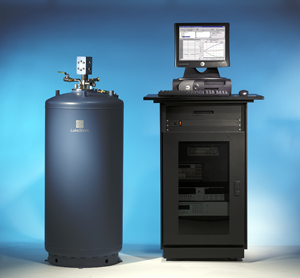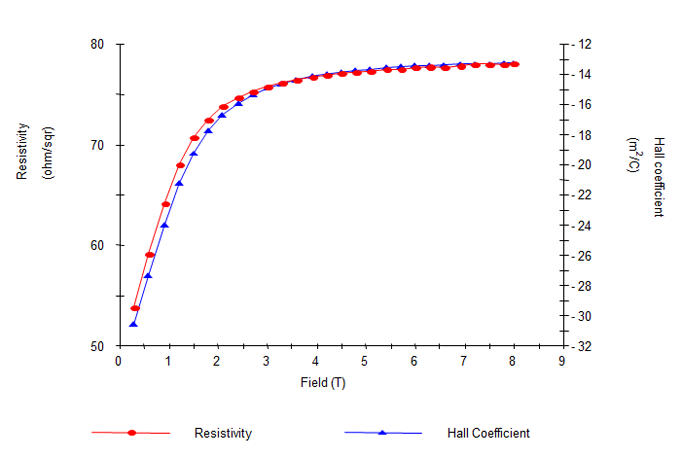Hall Effect Measurement System
| Description : Hall effect measurement systems (HMS) combine a wide resistance range, high voltage capability, high magnetic field, and broad temperature range to provide the most capable electronic transport measurement systems available today. The HMS feature hardware with electromagnet and superconducting magnet based platforms that can measure samples with resistances ranging from 10 µ to 200 G , provide fields to 9 T, temperatures from 2 K to 800 K, accommodate samples up to 6 inches in diameter, or measure up to 4 consecutive samples without a hardware change. Software features include experiment profiles with multiple measurement steps and samples, complete details of every voltage measurement, predefined measurement sequences, offline data viewing, contact formation, and depletion layer corrections The HMS measurement capabilities include Hall coefficient, Hall voltage, resistance, resistivity, magnetoresistance, I-V curves, carrier concentration and mobility. The HMS measures most compound semiconductor materials including pHEMTS, SiGe, SiC, InAs, InGaAs, InP, AlGaAs, HgCdTe, and ferrites; low resistance materials including metals, transparent oxides, dilute magnetic semiconductors, and TMR materials; and high resistance materials including semi-insulating GaAs and GaN, CdTe, and photodetectors
GaAs Sample at 30 K, Field Dependent Resistivity and Hall Coefficient |


